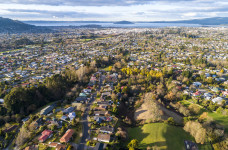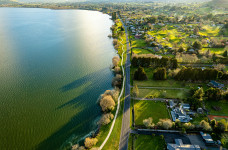Programme
Kāinga Ora - Homes and Communities Act 2019
The Kāinga Ora – Homes and Communities Act 2019 established Kāinga Ora – Homes and Communities (Kāinga Ora) as a Crown agent, setting out its objectives and how it's expected to deliver them.
About the Kāinga Ora – Homes and Communities Act
The Kāinga Ora – Homes and Communities Act (the Act) is administered by us, and we provide oversight and monitoring of Kāinga Ora. The Act sets out the objective, functions and operating principles of Kāinga Ora.
See the Kāinga Ora – Homes and Communities Act 2019(external link)
-
Objectives for Kāinga Ora
The objective of Kāinga Ora is to contribute to sustainable, inclusive and thriving communities that:
- provide good quality housing that meet diverse needs
- support good access to jobs, amenities and services
- sustain or enhance the overall economic, social, environmental and cultural wellbeing of current and future generations.
-
Functions of Kāinga Ora
The main housing functions of Kāinga Ora include:
- providing rental housing for those who need it most
- providing accommodation for community organisations
- giving people help and advice on housing and housing services
- providing housing or housing services on behalf of Crown entities.
For urban development, its main functions include:
- developing affordable, good quality housing that's a mix of public, private and community housing, including housing for first-time buyers
- developing or renewing urban environments
- developing commercial, industrial, community or other infrastructure, services or works
- understanding and supporting the urban development aspirations of Māori and other communities
- supporting innovation and capability in the wider urban development and construction sectors
- leading and promoting good urban design and efficient, integrated, mixed-used urban development.
Operating principles
Providing public housing solutions that contribute to wellbeing
- Provide good quality, warm, dry and healthy rental housing, supporting tenants to be well-connected to their communities, lead lives with dignity and the greatest degree of independence possible and to sustain their tenancies.
- Work with community providers to support tenants and make sure that people in most need are supported and housed.
- Be a fair and reasonable landlord, treating tenants and their neighbours with respect, integrity and honesty.
Housing supply meets needs
- Looking after its supply of housing, including upgrading and managing its housing so it remains fit for purpose.
- Developing good quality, affordable housing that’s a mix of public, private and community housing.
Well-functioning urban environments
- Making sure it's urban development creates quality infrastructure and amenities for communities
- developing housing that creates safe places to live and thriving communities.
Stewardship and sustainability
- Identifying and protecting Māori interests in land.
- Recognising and providing for the relationship of Māori to their ancestral lands, water, sites, wāhi rapu and other taonga.
- Working in a way that recognises environmental, cultural and heritage values as well as the need to adapt to the effects of climate change.
Collaboration and effective partnerships
- partnering and having early and meaningful engagement with Māori and other people or communities affected by urban development.
About Kāinga Ora and us
Kāinga Ora and our role are complementary in housing and urban development.
Kāinga Ora has two key roles:
- being a public housing landlord
- partnering with the development community, Māori, local and central government and others on urban development projects of all sizes.
In its public landlord role, Kāinga Ora manages around 65,000 public homes and also places people into public homes. In its urban development role, it's focused on delivering quality urban developments that connect homes with jobs, transport, open spaces and the facilities that communities need. This includes speeding up the delivery of build-ready land and building housing of different sizes, types and tenures that are a mix of public housing, affordable housing, homes for first home buyers and market houses.
We're responsible for the strategy, policy, funding, monitoring and regulation of Aotearoa New Zealand’s housing system. We work to deliver more public housing, transitional housing and services to deal with homelessness. This includes monitoring and providing oversight of Kāinga Ora.
The Government Policy Statement on Housing and Urban Development (GPS-HUD)
The Act also requires the government to produce the GPS-HUD. It outlines the Government’s long-term housing vision and sets out its key priorities for the housing and urban development system. It also provides strategic direction for Kāinga Ora, outlining how it’s expected to contribute to the government’s housing vision and objectives.
The Urban Development Act
The Urban Development Act came into force in 2020, to work alongside the Kāinga Ora – Homes and Communities Act. The Urban Development Act gives Kāinga Ora the ability to undertake (directly or as a facilitator) a certain type of urban development project, called specified development projects. As part of these projects, Kāinga Ora can access a range of powers to unlock urban development.



